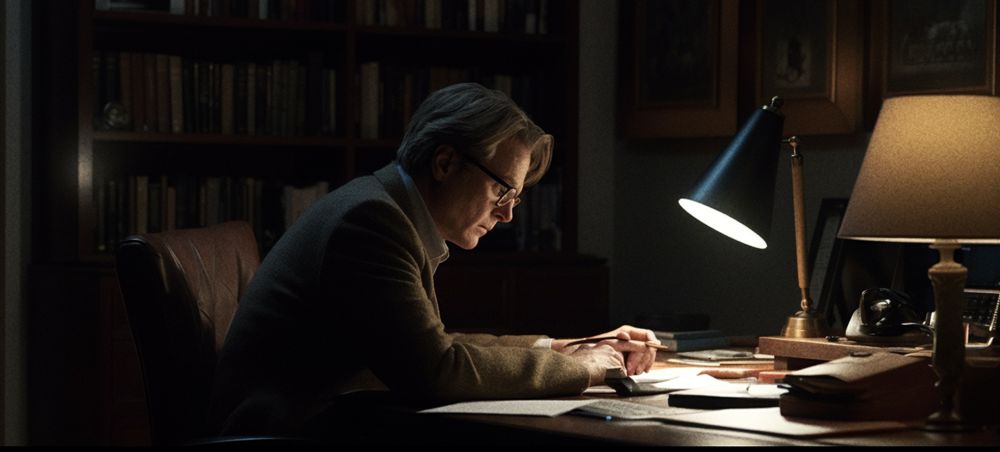
The Musicality of Aaron Sorkin's Dialogue
Picture this: a Friday night in New York, a studio apartment, no friends around, no TV, no stereo, no internet, and not even three dollars in your pocket.
What do you do?
If you're Aaron Sorkin, you stick a piece of paper in your friend's grandfather's semi-automatic typewriter and fall in love with the sound of your own voice. This is the birthplace of Sorkin's signature dialogue, a symphony of words that has graced screens big and small, from "The West Wing" to "The Social Network".
The Rhythm in Sorkin's Dialogue
For Sorkin, dialogue isn't just words exchanged between characters; it's a musical composition. It has rhythm, pitch, tone, volume, and meter. It's a symphony of human interaction, a cacophony of ideas clashing and harmonizing, a jazz improvisation of thoughts and emotions.
It's a dance where every step, every move, every gesture is meticulously choreographed. It's a song where every note, every beat, every pause is deliberately composed.
And just like in music, there are rules. If you're in 4/4 time, there have to be four beats in a measure. There can't be three, there can't be five. The same applies to dialogue. There's a rhythm, a tempo, a pace to it.
And if you miss a beat, if you drop a word or substitute a two-syllable word with a one-syllable word, it doesn't sound right. It doesn't sound as good. The joke doesn't work. The snappy comeback isn't as snappy.
Aaron's Art of the Argument
Sorkin's dialogue is a battleground of ideas, a gladiatorial arena where characters spar with words instead of swords. It's a chess match where every move is a sentence, every sentence is a move. It's a debate where the goal isn't to win, but to understand, to challenge, to provoke.
But it's not just about the conflict. It's about the characters. It's about their motivations, their desires, their fears. It's about what they want, what they need, what they're willing to fight for. It's about who they are, who they want to be, who they're afraid to be.
The Physicality of Writing
When Sorkin writes, he doesn't just sit at a desk and type. He talks out loud. He plays all the parts. He walks around. He jumps up and down. He even broke his nose once while writing. It's a physical process, a kinetic experience. It's a dance between the mind and the body, a ballet of thoughts and movements.
And it's not just about the physical act of writing. It's about the mental process, the creative journey. It's about sifting through a Rolodex of bad ideas to find that one good idea. It's about seeing bad movies in your head until you accidentally stumble upon a good one. It's about starting arguments with yourself, playing devil's advocate, challenging your own assumptions and beliefs.
Composing Award-Winning Dialogue
Writing, like music, is a form of expression, a way of communicating ideas and emotions. And just like music, it has its own rhythm, its own tempo, its own melody. It's a symphony of words, a dance of ideas, a song of human interaction.
And when it's done right, when it's done with passion and precision, it can move us, inspire us, challenge us, and change us.
So, the next time you watch a movie or a TV show, pay attention to the dialogue. Listen to the rhythm, the tempo, the melody. Listen to the music of the words. And maybe, just maybe, you'll hear something that will spark an epiphany, something that will make you see the world in a new light, something that will make you think, "Yeah, but have you thought of it this way?"
And remember, as Aaron Sorkin once said, "Getting to do what you love is a tremendous gift. Getting recognized for something you've done is the cherry on the icing on the cake." So, keep writing, keep playing, keep singing, keep dancing. Keep making music with your words. And who knows? Maybe one day, you'll fall in love with the sound of your own voice, too.